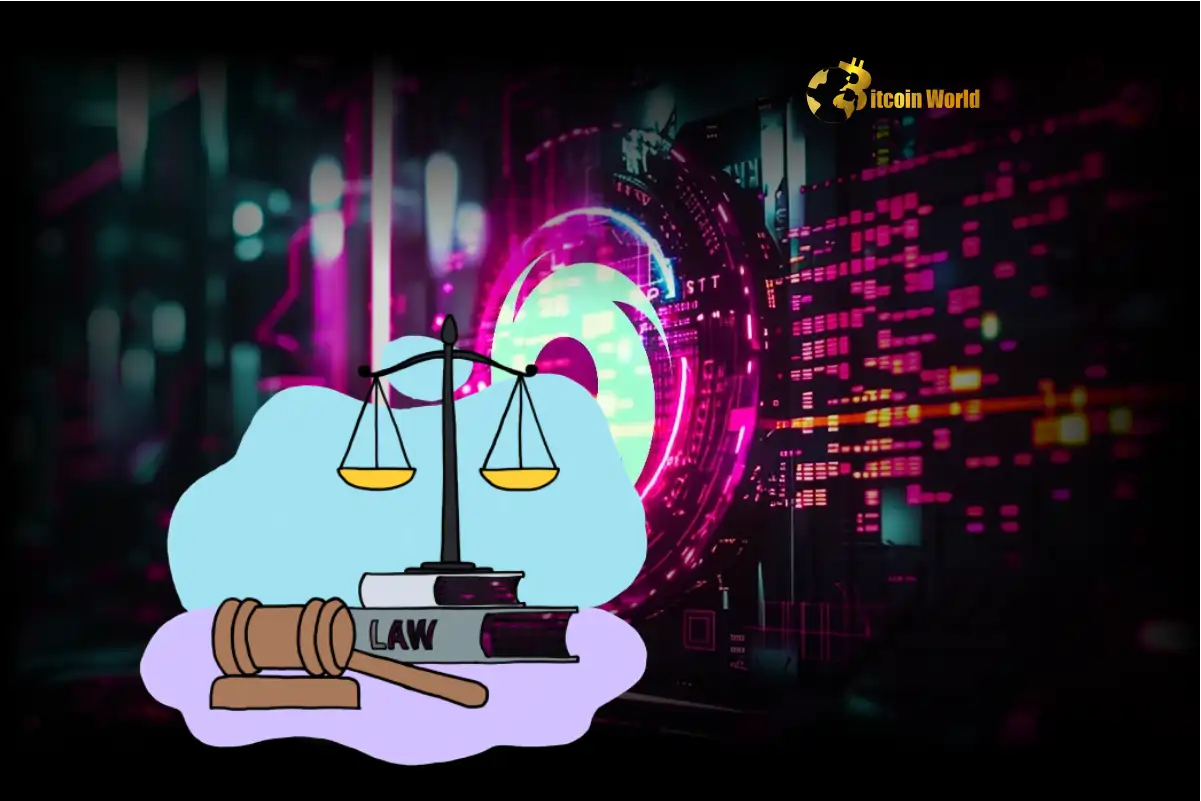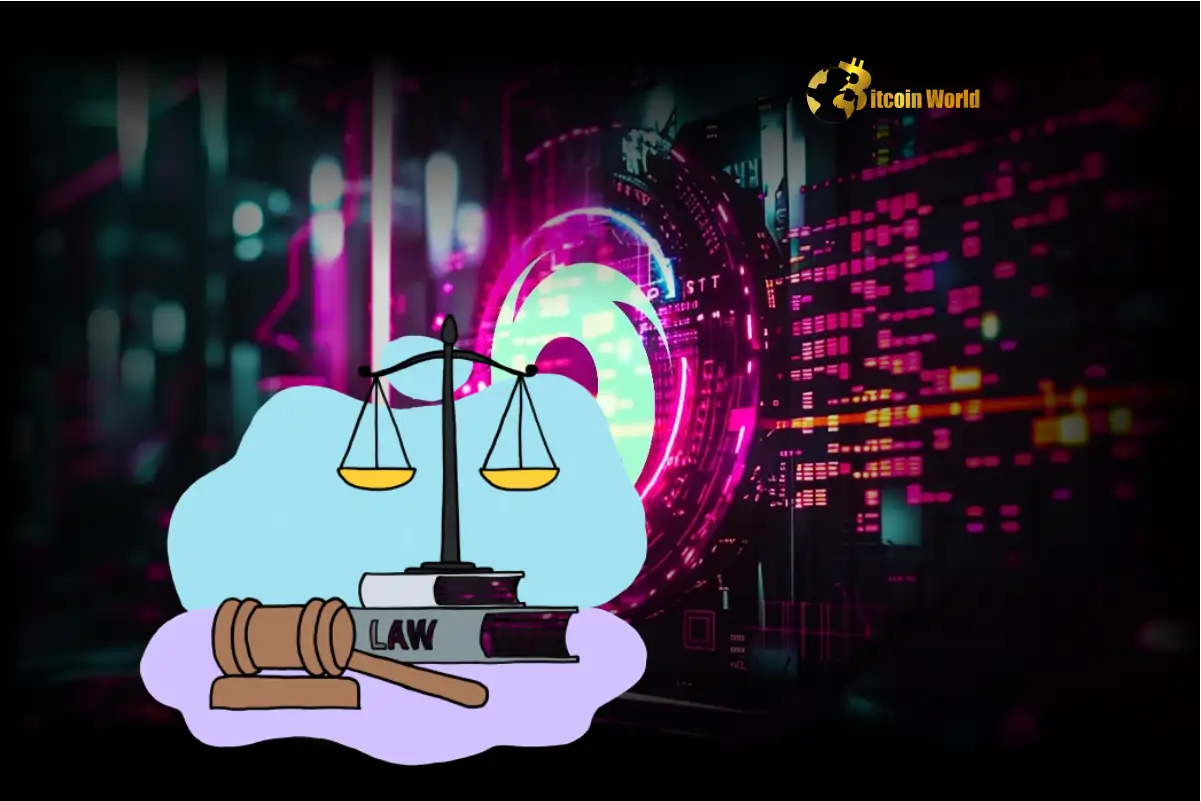BitcoinWorld

Tornado Cash Developer’s Defense Alleges Shocking DOJ Evidence Withholding
The legal battle surrounding Tornado Cash, the cryptocurrency mixer sanctioned by the U.S. Treasury, continues to unfold with significant developments. At the center is Roman Storm, one of its co-founders, who faces serious charges from the U.S. Department of Justice (DOJ). The charges include sanctions evasion, operating an unlicensed money transmission business, and conspiracy to commit money laundering. However, the narrative has taken a sharp turn, with Storm’s defense team making a serious accusation against the prosecution: withholding evidence.
What Are the Defense’s Claims Against the DOJ?
According to reports, Roman Storm’s legal counsel has formally informed the court that they recently discovered the government had been in possession of materials favorable to Storm’s defense since August 2023. This is a critical point in any legal proceeding. The defense argues that the DOJ’s failure to disclose these exculpatory materials at the time of Storm’s indictment and his initial court appearances constitutes a potential Brady violation.
What is a Brady Violation?
Named after the Supreme Court case Brady v. Maryland (1963), a Brady violation occurs when the prosecution in a criminal case fails to disclose evidence that is favorable to the defendant and material to either guilt or punishment. Essentially, it’s about ensuring a fair trial by requiring the government to share information that could help the defense. The defense claims this alleged failure by the DOJ has significantly hampered their ability to build and present a complete defense for Roman Storm.
Why is the Tornado Cash Case So Significant for Crypto Regulation?
The case against Roman Storm and the broader actions against Tornado Cash are seen as pivotal moments for crypto regulation globally. Tornado Cash was designed to enhance privacy by mixing cryptocurrencies from various users, making it harder to trace the origin and destination of funds. While proponents argue this is crucial for financial privacy in the digital age, regulators like the U.S. Treasury’s Office of Foreign Assets Control (OFAC) designated it as a tool used by malicious actors, including cybercriminals and state-sponsored hackers, to launder illicit funds.
The U.S. government’s stance is that by providing a service that facilitated money laundering, the developers are liable, even if the service was decentralized or the developers weren’t directly involved in every transaction. This approach has sparked intense debate within the cryptocurrency community about developer responsibility, the nature of decentralized protocols, and the future of privacy tools in crypto.
Key Aspects of the Roman Storm Case:
- The Charges: Sanctions evasion (for allegedly facilitating transactions for sanctioned entities), operating an unlicensed money transmission business, and conspiracy to commit money laundering.
- The Defense: Likely centers on arguments that Tornado Cash is a neutral, decentralized software tool, not a financial service operated by the developers, and that they lacked the intent or ability to control its use for illicit purposes. The current claim of withheld evidence adds a procedural challenge to the prosecution’s case.
- The Prosecution: Argues that the developers knew their tool would be used for illicit purposes and took steps to facilitate its use, making them responsible under U.S. law.
- Implications: The outcome could set a precedent for how decentralized application developers are treated under financial regulations worldwide.
Challenges and Debates Surrounding the Case
This case highlights fundamental challenges at the intersection of technology, privacy, and law enforcement:
- Decentralization vs. Control: Can developers be held liable for the actions of users on a decentralized protocol they no longer control?
- Privacy vs. Illicit Activity: How can regulators allow for legitimate financial privacy tools without enabling money laundering and other crimes?
- Defining “Money Transmitter”: Does simply writing and deploying code that facilitates value transfer constitute operating a money transmission business?
- Evidence Disclosure: The defense’s claim about the DOJ withholding evidence brings the fairness of the legal process itself into question, a critical challenge for the prosecution to address.
The legal team for Roman Storm will likely push hard on the alleged Brady violation, arguing that the delayed disclosure has prejudiced their client’s ability to receive a fair trial. If the court finds that material exculpatory evidence was indeed withheld, it could have significant consequences for the prosecution’s case, potentially leading to the exclusion of certain evidence, adverse jury instructions, or even dismissal of some charges, though the latter is less common in such high-profile cases.
What Actionable Insights Can We Take From This?
For the broader cryptocurrency community and those involved in building decentralized applications, this case offers several key insights:
- Regulatory Risk is Real: Developers of privacy-enhancing tools or any service that facilitates value transfer must be acutely aware of potential regulatory interpretations, particularly regarding money laundering and sanctions.
- Documentation Matters: Maintaining clear records of development intent, design choices, and efforts to comply (or reasons why compliance was deemed impossible or inapplicable) could be crucial in future legal challenges.
- Legal Counsel is Essential: Engaging with legal experts familiar with both crypto technology and financial regulation is vital from the early stages of project development.
- Transparency vs. Privacy Debate Continues: The case underscores the ongoing tension between the desire for financial privacy offered by tools like Tornado Cash and the demands for transparency from regulators combating illicit finance.
The claim of withheld evidence adds a dramatic layer to an already complex legal battle. It shifts some focus from the technical and regulatory arguments to the conduct of the prosecution itself. The court will need to assess the materiality of the allegedly withheld evidence and determine if the defense was indeed prejudiced by the delay.
This development ensures that the Roman Storm trial will remain a closely watched event, not just for its implications for decentralized finance and privacy tools, but also for what it reveals about the government’s strategy and conduct in prosecuting individuals associated with such technologies.
In Conclusion: A Critical Juncture for Crypto and Justice
The legal proceedings against Tornado Cash co-founder Roman Storm represent a critical juncture for the cryptocurrency industry, particularly concerning privacy and regulatory enforcement. The defense’s recent accusation that the DOJ withheld favorable evidence introduces a significant challenge to the government’s case and raises fundamental questions about fairness in prosecution. As the case progresses, the outcome will not only determine the fate of Roman Storm but also help shape the future legal landscape for decentralized applications and developers worldwide, influencing how innovation in crypto is balanced against the imperative to combat money laundering and other financial crimes.
To learn more about the latest crypto regulation trends, explore our articles on key developments shaping crypto regulation and institutional adoption.
This post Tornado Cash Developer’s Defense Alleges Shocking DOJ Evidence Withholding first appeared on BitcoinWorld and is written by Editorial Team





